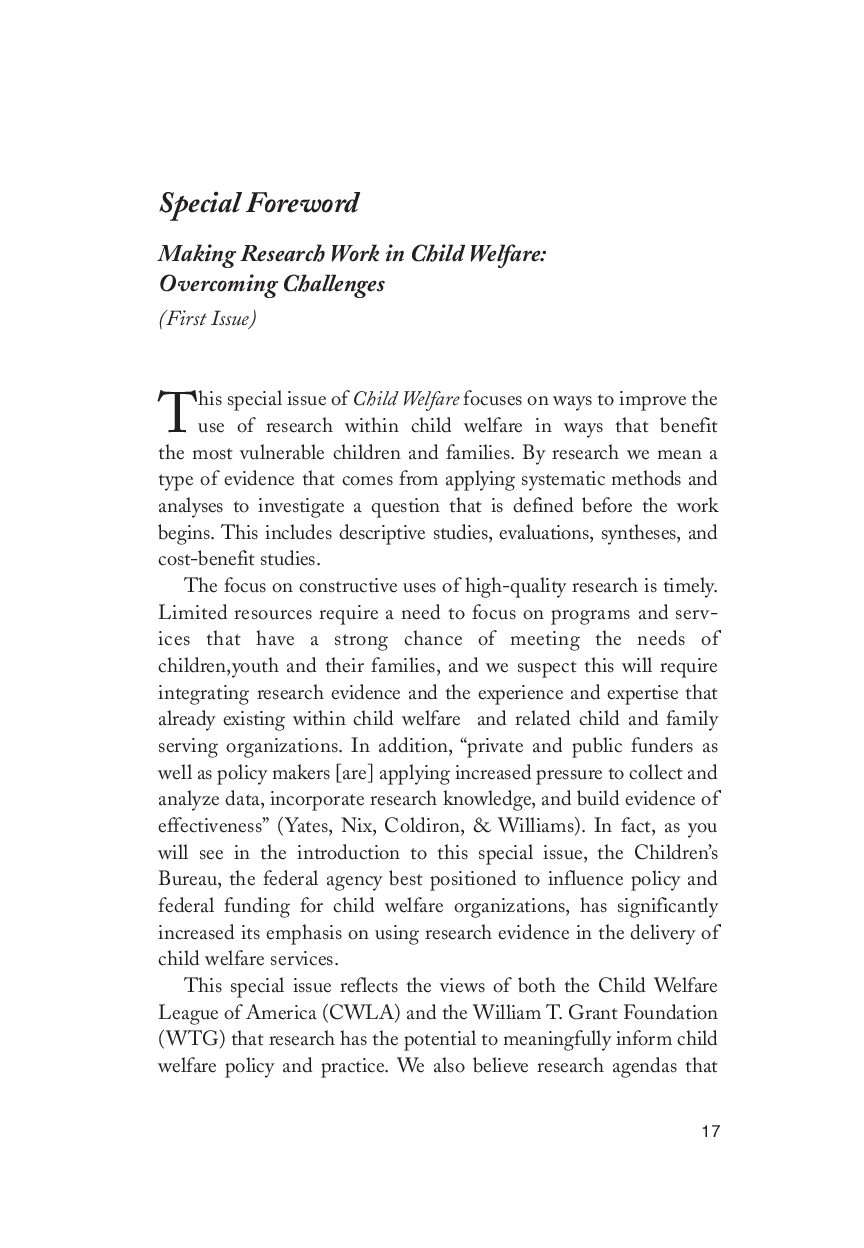The child welfare system comprises a range of organizations that provide prevention and protection services to the nation’s most vulnerable children and families, including foster care, mental health care, substance abuse treatment, parenting classes, and housing assistance.
What might it take for the child welfare system to better meet the needs of the children, youth, and families it serves? A new two-volume special issue of the Child Welfare Journal explores the potential value of integrating high-quality research evidence with the experiences and expertise of child welfare practitioners to promote positive outcomes for vulnerable children and families.
Jointly edited by the Child Welfare League of America (CWLA) and the William T. Grant Foundation, the issue outlines the real-life challenges and negotiations of integrating research with existing policies and practices. Contributors offer analyses and examples of organizational strategies, structures, and alliances that embed research in organizations that promote the well-being of children, youth, and families.
In addition, the special issue surfaces a number of ideas that are specifically relevant to researchers interested in improving the use and usefulness of research evidence, for example collaborating with practitioners and policymakers to construct joint research agendas that address local concerns.
Read the introduction, written by Senior Program Officer Kim Dumont and CWLA President Chris James-Brown, and purchase a copy of the journal directly from CWLA.



